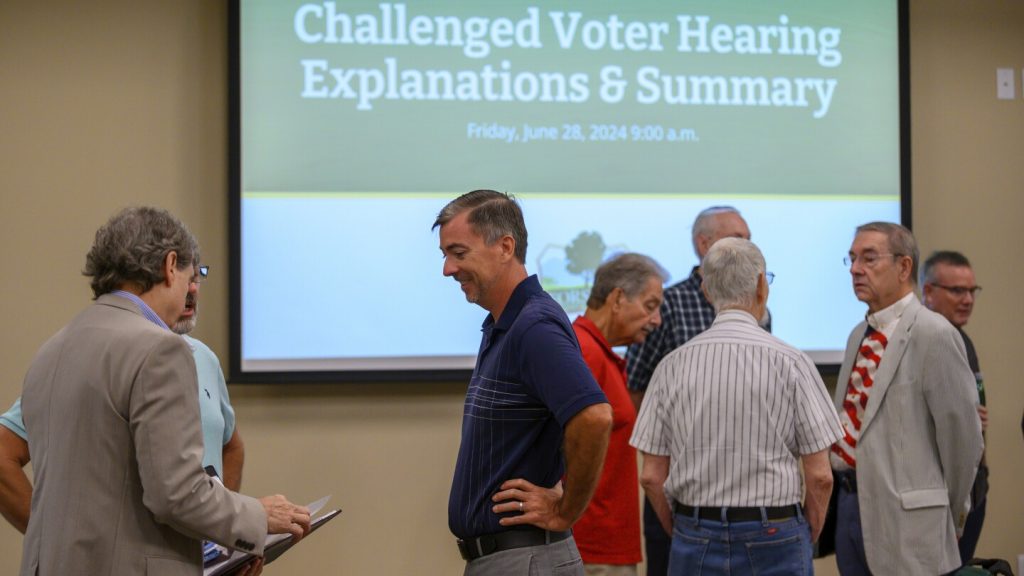To summarize the content into a 2000-word news article, the focus will be on the efforts by Donald Trump’s allies to challenge voter qualifications in Georgia, leading to a surge in the number of voters being challenged since July 1. These challenges have been mainly concentrated in Democratic counties in metro Atlanta but have now spread to over 20 counties statewide, including some heavily Republican areas. Despite the increase in challenges, county election officials continue to reject the vast majority of them, with only a small number of voters being removed from the rolls or placed in challenged status.
The push to remove voters from the rolls has drawn scrutiny from the U.S. Justice Department, which issued a guidance memo in September to limit challenges and block parts of the new Georgia law. The challenges primarily target voters who appear to have moved away from their listed addresses, with activists arguing that allowing these voters to stay registered invites fraud. Critics of the challenges argue that they are based on faulty information and that voters who change their mailing addresses may not have changed their residences. The voter challenge movement has sparked political tensions, with many Democrats and voting rights activists accusing Republicans of using these challenges to either remove Democratic voters or cast doubt on the accuracy of elections.
The controversial voter challenges have led to heated debates in county election boards, with some voters expressing frustration at the process and the impact of poorly thought-out laws. While some Republican-led counties have removed or placed a significant number of voters in challenged status, others have postponed action until after the 90-day deadline stipulated by federal law for systematic changes to voter rolls. The disagreements over the challenges have also raised questions about the legality and fairness of the process, as some argue that federal and state laws conflict on the issue of voter removal.
The efforts to challenge voter qualifications in Georgia are part of a broader national trend coordinated by Trump’s allies to clean up voter rolls and prevent what they see as illegal voting. Despite the minimal impact of the challenges so far, the ongoing legal battles and political tensions surrounding the issue indicate that this campaign is unlikely to fade away soon. As the State Election Board considers statewide rules to ensure more challenges are heard, the future of voter challenges in Georgia remains uncertain. The outcome of these challenges could have significant implications for the integrity of elections in the state and the broader debate over voting rights and voter suppression.


